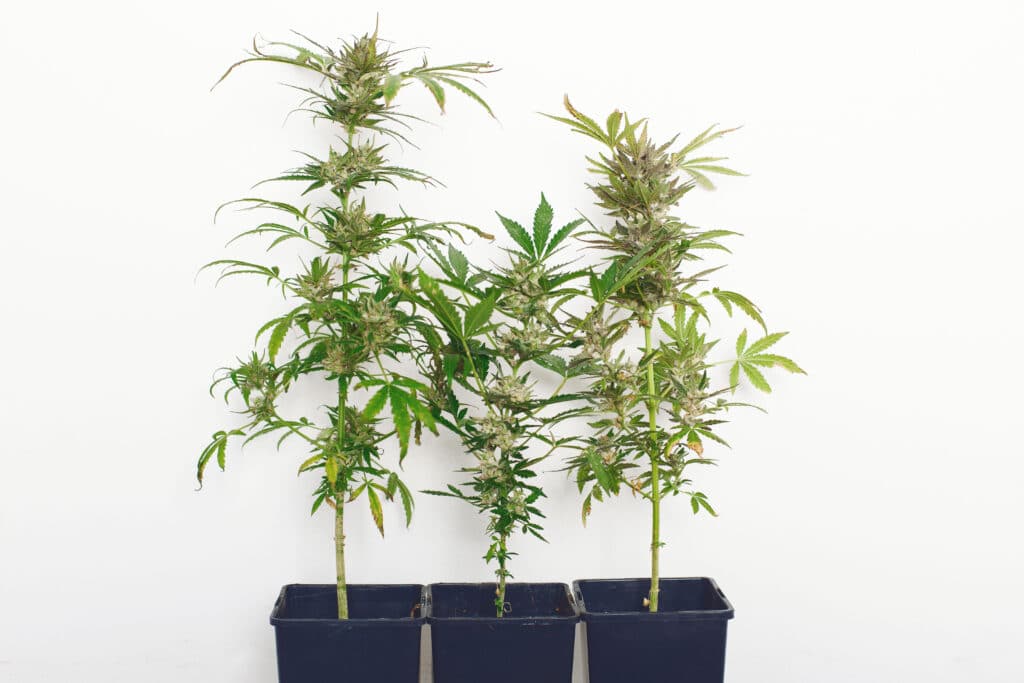European countries are quickly changing when it comes to cannabis policy, which creates a push pull between the individual countries and the federal governance. This situation is exemplified by Malta, Germany, and now Luxembourg. Luxembourg is the newest country in Europe to make cannabis legal, but follows suit to the others, with no sales market. Read on for more info.
How Luxembourg made cannabis legal
The recent confirmation of a cannabis legalization from Luxembourg, is not the first action in this realm. Luxembourg was actually one of the first European countries to announce an idea to make cannabis legal in some capacity. In fact, the first time I reported on this, was three years ago, when it seemed quite possible Luxembourg would be the first EU country to do so. In the end it wasn’t first, but not far off.
Luxembourg has been relatively cool with cannabis for awhile. It passed a decriminalization measure back in 2001. This modified its 1973 drug laws, and reclassified cannabis as a Category B controlled substance, which opened the doors for decriminalized personal use and possession of the plant. The country passed a medical legalization bill in 2018 as a pilot program, voted in unanimously by the government.
By the end of 2018, the government was already pushing for a more formal recreational legalization policy. The first plans were released that year by the coalition government, made of the Socialist Working Party, the Democratic Party, and the Greens. The idea at the time was to set up a commercial use market. In putting this together, Luxembourg was the first EU country to introduce such an idea.
That was also almost five years ago, and I’m only writing about cannabis becoming legal in Luxembourg now. Part of that has to do with a government working out details for itself, and part of it has to do with Luxembourg’s need to comply with EU mandate as a part of the EU. Luxembourg is now following in the footsteps of Malta and Germany, in legalizing, without a commercial market.
At the time of the announcement, Minster of Justice Sam Tanson said that the country was taking an approach of “risk reduction and crime prevention.” He said complete criminalization of cannabis was “an absolute failure.”
What Luxembourg made legal for cannabis
Luxembourg didn’t pass a full legalization measure; but it did legalize some things. The new bill to pass, is actually a grow law, and permits the legal personal cultivation of cannabis. In so doing, it legalizes the personal possession and use of the plant, as well. The bill does not include anything on a commercial level, so everything it does account for, is on a personal level. The law applies to those 18 and above.
The bill passed in a vote of 38-22 by the Chamber of Deputies on Wednesday, June, 28th. According to the legislation, every household is permitted four plants, but they cannot be seen from a roadway. Growing outside is much more limited, but can still apply if the outdoor area is adjacent to the private residence, and meets all other standards.
The law dictates a possession allowance outside of a private residence, of 3 grams. This is a very small amount, which indicates that the government finds it much more preferable for residents to have and use the weed in their homes, and not outside.
The law draws a line at this point, making clear that use outside these parameters is met with repercussions. Maybe a little overly-strict considering the allowance is for so little. Nonetheless, according to the law, illegal use is met with a fine of 25-500 Euro. It does stipulate that a warning can be given in place of this, with a fine of 145 Euro. This warning can be given by judicial police, Grand Duchy police, or Customs and Excise Administration agents. It also stipulates that these punishments are not applicable to medical patients with valid prescriptions.

The law is even more abrasive in other circumstances. For example, if you use in front of a minor or at a work place or school, you’re looking at 8 days – 6 months in prison, and 251 – 2,500 Euro in fines. This is consistent with the country’s standard drug laws. In terms of cultivating more than the legal allowance, this too is met with strict penalties, likely to discourage any illicit market. If found with more than four plants, or otherwise breaking cultivation laws, the fine amount is 500 – 250,000 Euro, and/or eight days – five years in prison.
The law text spends nearly the entire time talking about punishments for infractions, and really doesn’t specify anything beyond the basic cultivation and possession limits. The entirety of the law is based around the idea that personal cultivation is now legal up to a point.
Cannabis in Europe
This setup of legalizing something, but without a commercial market, isn’t new to Europe. Luxembourg is officially the second country in the EU to make cannabis legal, but without a formal market. In December of 2021, Malta became the first EU country to legalize cannabis, which is did through the passage of Bill No. 241.
The Malta law is slightly more permissive than Luxembourg in terms of possession outside a house. The law allows adults residents of 18 and above to cultivate four plants in their homes, store up to 50 grams, and move around with up to seven. Luxembourg makes no stipulation about the amount stored in a house.
Whereas Luxembourg said nothing about any other form of procurement, Malta’s law does allow the creation of ‘associations’ which act like cannabis social clubs. The associations can grow the plant and disseminate it to members, who pay a fee to be a part of the association. The associations can also give out seeds for home cultivation. This is as far as Malta went, with no other form of sale or procurement allowed.
Perhaps this is all Malta wanted; and perhaps Malta simply didn’t want a predictable fight on its hands. Malta passed a measure that didn’t go up against EU policy. Earlier this year, Germany tried to. Germany wanted to be the first cannabis sales market in the EU, and many stories were published on this matter in the lead-up to a bill. The steam left the sails quickly when it was understood the EU wouldn’t allow this for legal reasons; and Germany backed down quickly.

Right after Easter the country announced a new setup that mirrors Malta’s in terms of cannabis clubs, but which also includes a pilot program to sell cannabis in limited circumstances in specific places. We are waiting on details for that part. As of yet, no official bill passed, which means Germany is merely a country which has spoken about legalization, but which hasn’t yet legalized anything.
Switzerland also is in on the weed game in Europe. Even as the country is not bound to EU laws, it still only implemented a half-way legalization in the form of a pilot program. The pilot program has been in the works for a couple years, and allows the sale in a very limited capacity as part of a trial. So far, Zurich is the only setup location. It’s hard to say why Switzerland didn’t just legalize a full-reaching sales market from the beginning.
The truth is, Malta was the first EU country to go in this direction, but not the first country in Europe. Georgia was the first country to legalize recreational cannabis by way of a Supreme Court ruling in 2018. In fact, it beat Canada to be the second country to do so after Uruguay earlier that year; Canada’s formal legalization didn’t come until October. What Georgia didn’t do yet, is update things to match. Though recreational possession and use are legal; there are no allowances for cultivation, purchase or sale. Meaning its legal, but there’s no legal way to get it.
Conclusion
Luxembourg exemplifies the turning tides of thought when it comes to cannabis in the EU, but it also exemplifies the issue of a state vs a federal body. As more countries go in this direction, the question becomes, when will a country go up against the EU to actually open a sales market?
Hello all. Cool that you’re here to share good vibes with us at Cannadelics.com. We’re an independent news site with an interest in drugs; particularly cannabis and hallucinogens. Come about regularly for updates and commentary on important stories, and subscribe to the Cannadelics Weekly Newsletter, so you’re always first to get the news.





